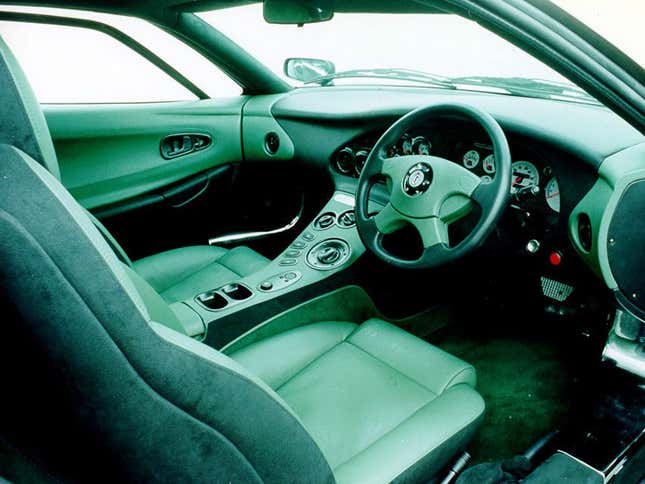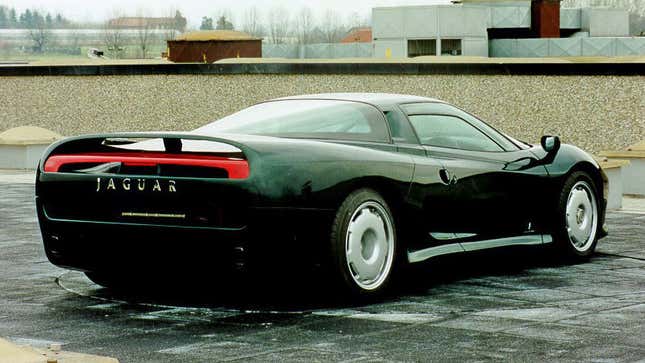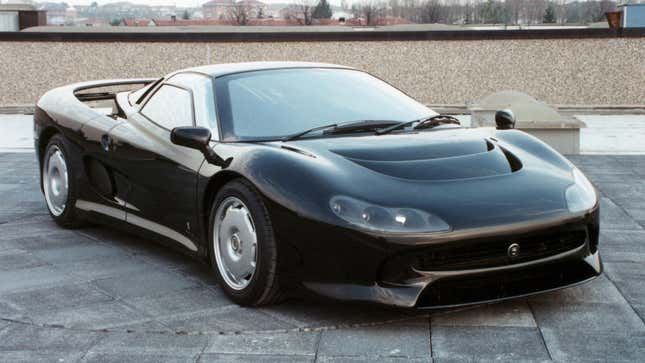The Prettiest Jaguar XJ220 Was The One Pininfarina Designed

The Jaguar XJ220’s silhouette might’ve been a bedroom wall mainstay, but the car itself wasn’t quite the article promised. A twin-turbocharged 3.5-liter V6 evolved from the MG Metro 6R4 was a neat talking point for a supercar, but it was no V12. The switch from all- to rear-wheel drive, ostensibly to keep weight down and reduce complexity, came across unambitious in the wake of the Porsche 959. And despite these compromises in the interest of packaging, the XJ220 was still overly long and wide and not described by many as a nimble handler.
Cadillac Allanté | Jalopinions
But it had the show car’s looks, right? Truth be told, for a kid that worshipped at the altar of the McLaren F1, Ford GT90, Lamborghini Calà (we need a story on that one), Isdera Commendatore 112i and most of the Need For Speed II roster, it never quite did it for me. The thing always looked heavy and bulbous with excessive overhangs. It was like someone at Jaguar subjected Ford’s unpopular Ovoid design principles to an industrial press. Besides, Pininfarina did it better about a year after the XJ220 ended production.
This is an official Jaguar press image, so I cannot explain the tragedy that struck the edge of that front wheel well.Image: Jaguar
If you haven’t seen the Turin design house’s stab at Jaguar’s late-’90s flagship, that’s likely because there are maybe five images of the final result in internet circulation and a handful more taken during development courtesy of Paolo Garella, who worked on the project. Exactly one was made for — you guessed it — the Sultan of Brunei and his brother Prince Jefri.
As such, we know a few things about it, but not as much as we’d like. Pininfarina contracted coachbuilder Coggiola to make the body panels and engineering firm Italtecnica to supply the XJ220 with a Williams-built paddle-shift gearbox, power steering and better cooling, according to Supercar Nostalgia. Those constituted pretty much all the technical alterations. Meanwhile, the cabin saw a much bolder design befitting of a contemporary concept car of the day. It didn’t look so obviously an assemblage of off-the-shelf parts as the series production car’s, that’s for sure.

Image: Pininfarina
The exterior is what wins me over, though, since looks were primarily the XJ220’s bag anyway. Whether this version is physically more compact or not, it comes off that way. The front end is now lower and leaner; the side sills no longer slab sided but now tapered in, accentuating the corner haunches. There appear to be a pair of channels that flank the engine cover and exit under the double rear wing, a rare sight on production cars of the time. A wing split by a three-dimensional heckblende, dowdy Rover 200 clusters be damned. This is the kind of lighting innovation we’re only seeing in the market today, on a one-off from about three decades ago. Exquisite badging completes the look.

Image: Pininfarina
The Pininfarina Speciale, as it was called, completely shedded the regular XJ220’s excess and ungainliness. The only detail that I reckon should’ve been carried over from the original, or at least done a little differently, rests with the headlights. The units on this car seem a little more generic than Jaguar’s drop-down covers and call to mind an entire generation of Koenigsegg products. That’s certainly not the design house’s fault; nevertheless, they somewhat muddy the car’s personality all these years later.

Image: Pininfarina
The lamps aren’t terrible by any means, though, and I can forgive them. Much like how Italdesign penned the best-looking GT-R since the R32 and the only beautiful Corvette since the ’60s, here Pininfarina outclassed the in-house design crew and created something that spared no expense, that truly looked as futuristic as Jaguar wanted people to believe the XJ220 was. Unfortunately, these might just be the only pictures any of us ever see of it.



